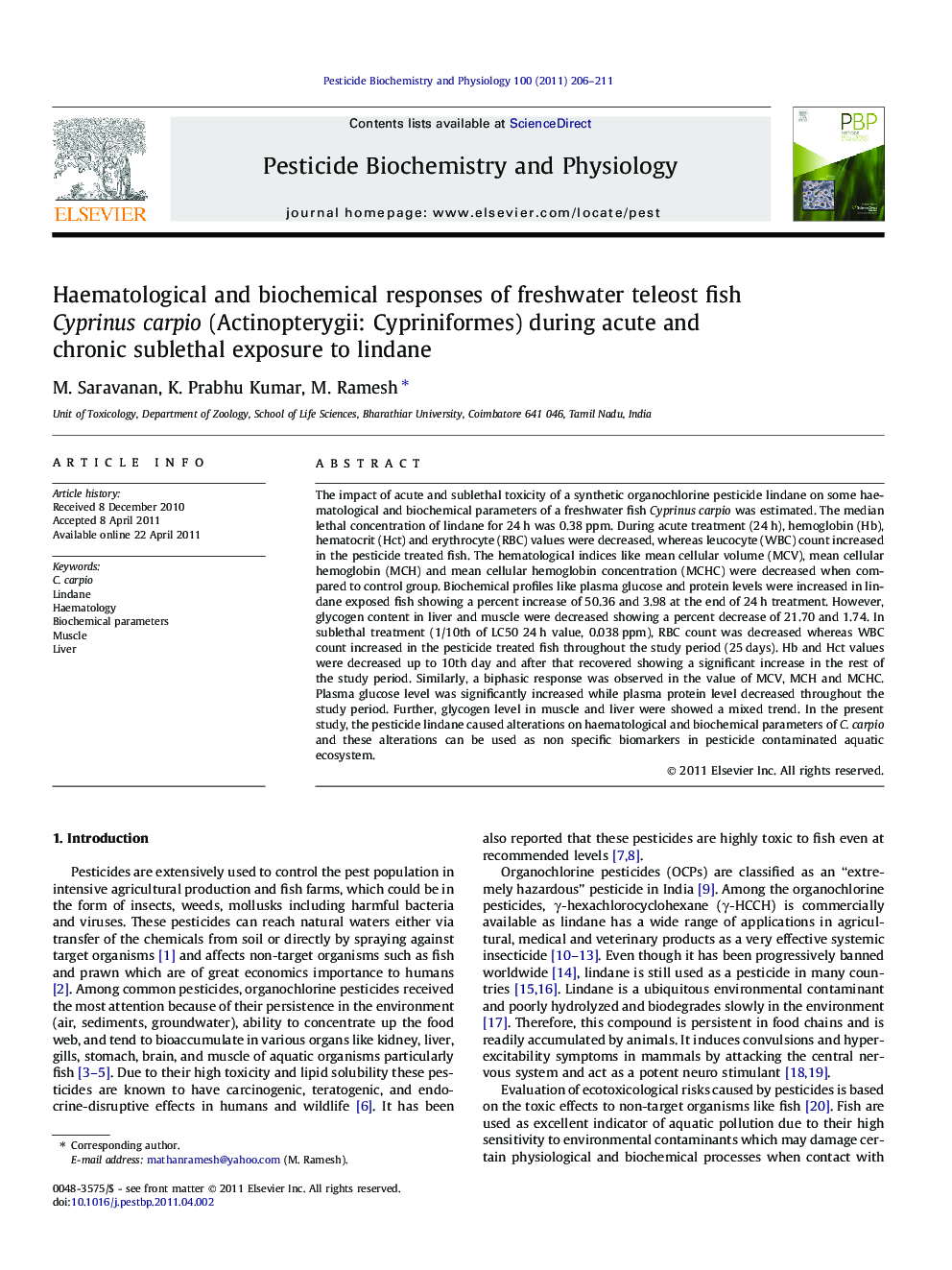| Article ID | Journal | Published Year | Pages | File Type |
|---|---|---|---|---|
| 2009369 | Pesticide Biochemistry and Physiology | 2011 | 6 Pages |
The impact of acute and sublethal toxicity of a synthetic organochlorine pesticide lindane on some haematological and biochemical parameters of a freshwater fish Cyprinus carpio was estimated. The median lethal concentration of lindane for 24 h was 0.38 ppm. During acute treatment (24 h), hemoglobin (Hb), hematocrit (Hct) and erythrocyte (RBC) values were decreased, whereas leucocyte (WBC) count increased in the pesticide treated fish. The hematological indices like mean cellular volume (MCV), mean cellular hemoglobin (MCH) and mean cellular hemoglobin concentration (MCHC) were decreased when compared to control group. Biochemical profiles like plasma glucose and protein levels were increased in lindane exposed fish showing a percent increase of 50.36 and 3.98 at the end of 24 h treatment. However, glycogen content in liver and muscle were decreased showing a percent decrease of 21.70 and 1.74. In sublethal treatment (1/10th of LC50 24 h value, 0.038 ppm), RBC count was decreased whereas WBC count increased in the pesticide treated fish throughout the study period (25 days). Hb and Hct values were decreased up to 10th day and after that recovered showing a significant increase in the rest of the study period. Similarly, a biphasic response was observed in the value of MCV, MCH and MCHC. Plasma glucose level was significantly increased while plasma protein level decreased throughout the study period. Further, glycogen level in muscle and liver were showed a mixed trend. In the present study, the pesticide lindane caused alterations on haematological and biochemical parameters of C. carpio and these alterations can be used as non specific biomarkers in pesticide contaminated aquatic ecosystem.
Graphical abstractFigure optionsDownload full-size imageDownload as PowerPoint slideResearch highlights► Lindane is a ubiquitous environmental contaminant. ► We investigated the toxicity of lindane to a freshwater fish Cyprinus carpio using certain biomarkers. ► It causes alterations in hematological and biochemical parameters of Cyprinus carpio in acute and sublethal treatments. ► Alterations of these parameters may provide a early warning signals of acute and sublethal toxicity of pesticides. ► This study also provide a better understanding of the toxicological endpoint of aquatic pollutants.
